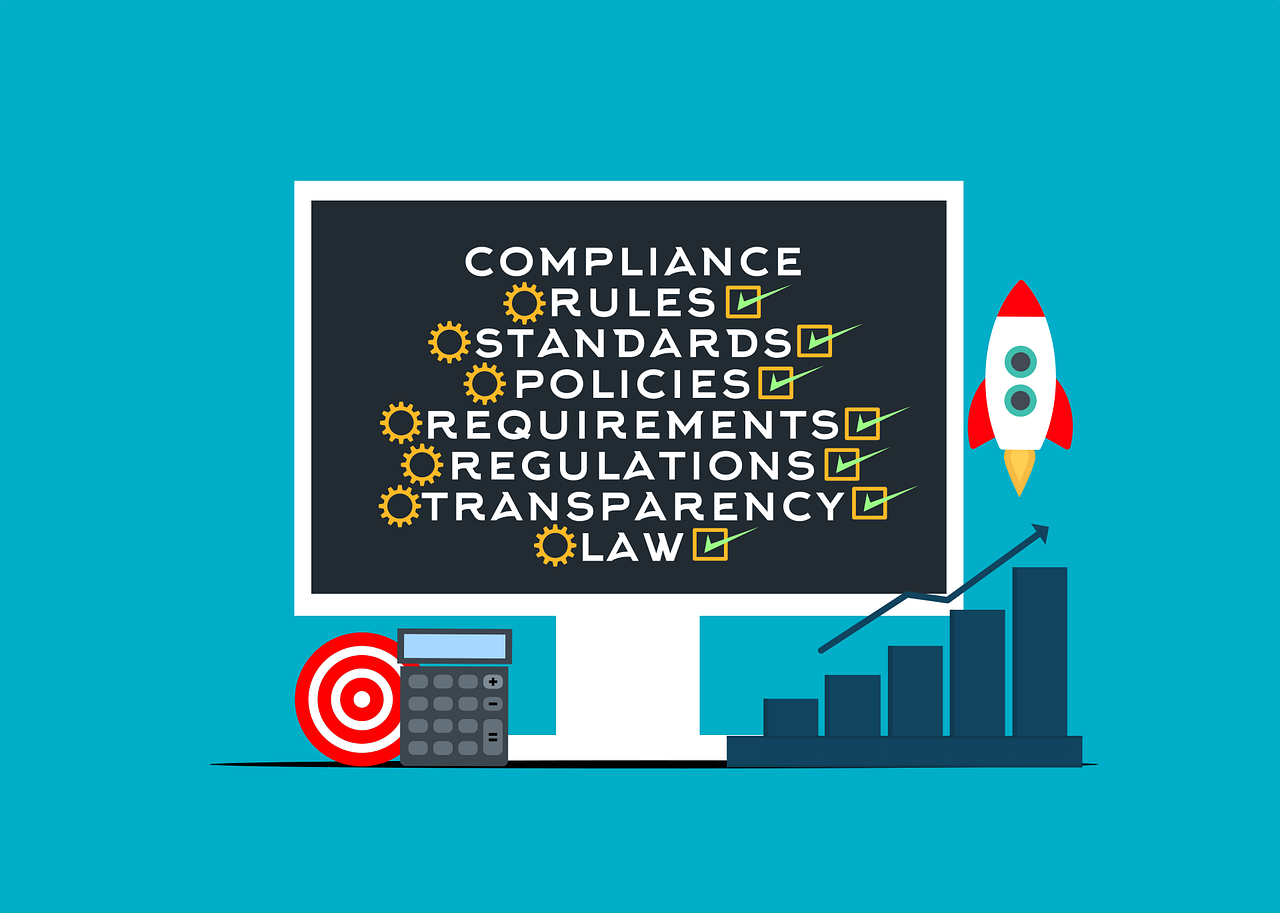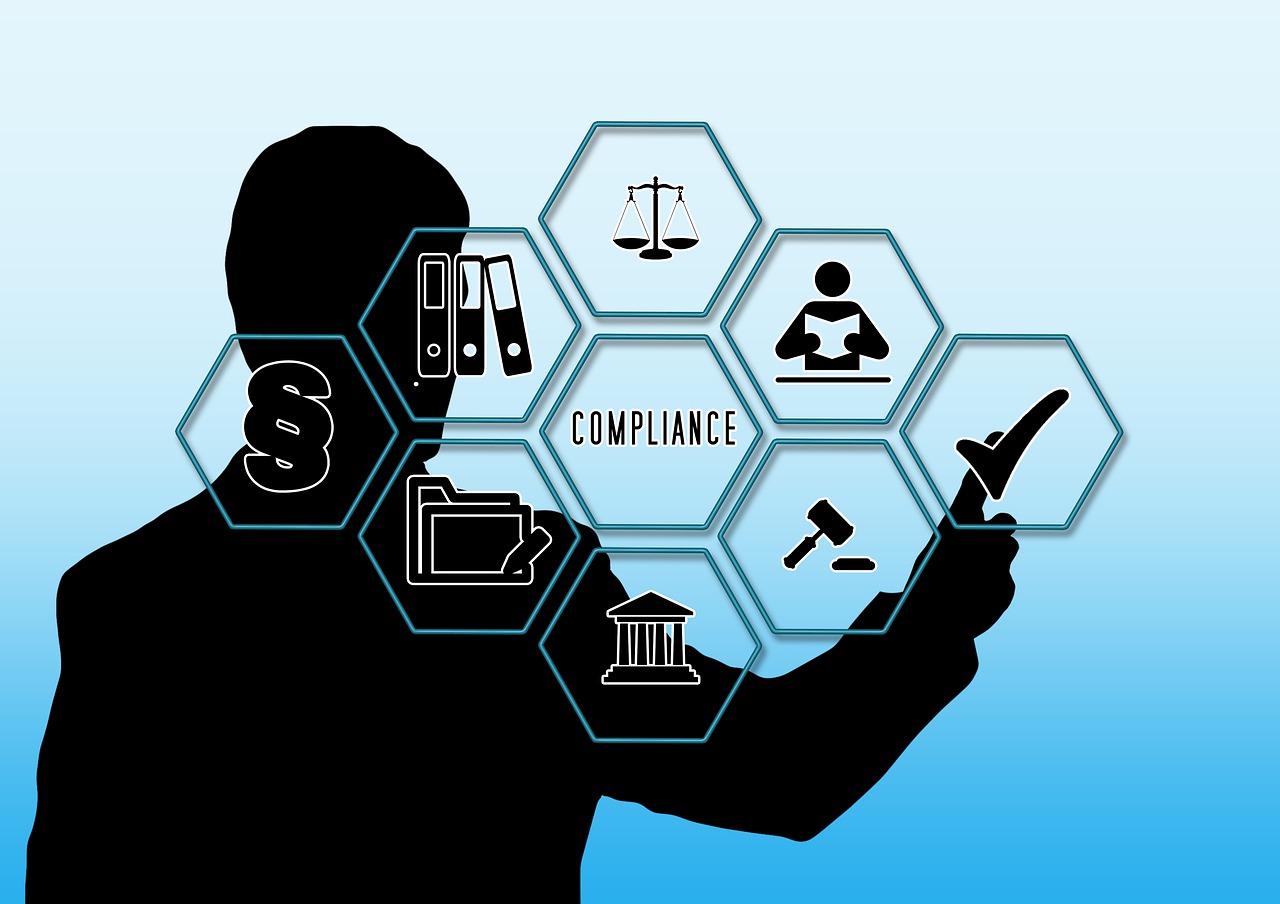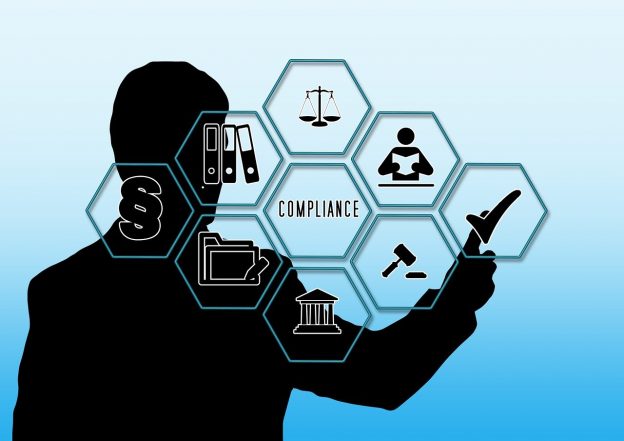In today’s competitive business landscape, ensuring legal compliance is paramount to the success and longevity of a company. One important area that often gets overlooked is reference checks compliance. This critical aspect of the hiring process involves verifying the accuracy of information provided by job candidates and adhering to legal guidelines when conducting background checks. By understanding the importance of reference checks compliance, businesses can mitigate the risk of potential lawsuits, protect their reputation, and make informed decisions when selecting new employees. In this article, we will explore the key aspects of reference checks compliance and provide answers to common questions surrounding this topic.

Understanding Reference Checks Compliance
When it comes to the hiring process, reference checks play a crucial role in determining whether a candidate is a good fit for a job. However, it is important for employers to understand the legal implications and compliance requirements associated with conducting reference checks. This article will provide a comprehensive overview of reference checks compliance, including the legal regulations and requirements, best practices for conducting reference checks, and the potential risks of non-compliance.
Why Reference Checks Are Important
Reference checks are an essential part of the hiring process as they provide employers with valuable insights into a candidate’s qualifications, work ethic, and character. By contacting previous employers or other individuals who can provide a credible perspective, employers can gather information that may not be readily apparent from a candidate’s resume or interview. This information can help employers make an informed decision about whether to extend an offer of employment.
Legal Implications of Reference Checks
While reference checks serve as a useful tool for employers, it is important to be aware of the legal implications associated with conducting them. Employers must navigate various federal, state, and local laws and regulations to ensure they are conducting reference checks in a compliant manner. Failure to do so can result in legal consequences, including potential lawsuits and damage to the employer’s reputation.
Understanding the Compliance Process
To ensure compliance with legal requirements, employers must have a thorough understanding of the compliance process involved in conducting reference checks. This includes familiarizing themselves with the Equal Employment Opportunity Commission (EEOC) guidelines, the Fair Credit Reporting Act (FCRA), and any state-specific laws and regulations that may apply. By following these guidelines and regulations, employers can mitigate the risk of non-compliance.

Legal Regulations and Requirements
There are several key legal regulations and requirements that employers must adhere to when conducting reference checks. The Equal Employment Opportunity Commission (EEOC) guidelines prohibit employers from making employment decisions based on race, color, religion, sex, national origin, age, disability, or genetic information. These guidelines ensure that employers do not discriminate against candidates during the reference check process.
The Fair Credit Reporting Act (FCRA) also plays a significant role in reference checks compliance. This act sets forth certain requirements for employers who use third-party background screening companies to conduct reference checks. Under the FCRA, employers must provide candidates with a clear and conspicuous disclosure that a reference check may be requested, obtain written consent from the candidates, and provide them with a copy of the reference check if it results in an adverse employment decision.
In addition to federal regulations, employers must also be aware of state-specific laws and regulations that may govern reference checks. Some states have their own guidelines in addition to the federal requirements, so it is important for employers to familiarize themselves with these laws to ensure compliance.
Pre-Employment Reference Checks
Conducting thorough reference checks before making a hiring decision is essential for employers. Reference checks provide a valuable opportunity to verify information provided by candidates, gain insights into their past performance and behavior, and assess their suitability for the position. By contacting previous employers, supervisors, or colleagues, employers can gather firsthand accounts of a candidate’s work history, job performance, and interpersonal skills.
Best practices for requesting references include requesting references from the candidate’s most recent employers, preferably those who have directly supervised the candidate’s work. It is also important to ask open-ended questions that allow the reference to provide detailed responses, as this can provide a more accurate depiction of the candidate’s qualifications and abilities. Employers should also obtain multiple references to ensure a well-rounded evaluation of the candidate.
During reference checks, employers can ask questions related to the candidate’s job performance, reliability, ability to work in a team, and any specific skills relevant to the position. However, it is important to ensure that these questions are job-related and do not touch on any protected characteristics, such as race, religion, or disability.
Disclosure and Consent
The disclosure and consent process is a critical component of reference checks compliance. Employers must provide candidates with a clear and concise disclosure that a reference check may be conducted as part of the hiring process. This disclosure should inform candidates of the purpose of the reference check, the type of information that will be obtained, and how it will be used.
Employers are also required to disclose certain information to candidates before conducting a reference check. This includes informing candidates of their right to obtain a copy of the reference check report, the name and contact information of the background screening company or reference provider, and their right to dispute any inaccuracies in the report.
Obtaining consent from candidates is equally important. Employers must obtain written consent from candidates before conducting a reference check. This consent should be separate from other consent forms and clearly state that the candidate understands and agrees to the reference check.
Reference Checks Process
The process of conducting reference checks involves contacting references provided by the candidate and gathering relevant information regarding the candidate’s qualifications and suitability for the position. It is important for employers to be diligent and professional during this process to ensure accurate and reliable information.
Contacting references should be done in a respectful and timely manner. Employers should introduce themselves, explain the purpose of the call, and express appreciation for the reference’s time and input. It is important to ask open-ended questions that allow the reference to provide detailed feedback and insights into the candidate’s qualifications and performance.
After conducting reference checks, it is essential to document the findings. This documentation should include the reference’s contact information, the questions asked, and the reference’s responses. This record can serve as evidence of the reference check process in case of any legal disputes.

Handling Negative References
Encountering negative reference feedback can present a challenge for employers. It is crucial to handle such situations with fairness, objectivity, and professionalism. Employers should carefully consider the context and credibility of the negative feedback before making any judgments.
When faced with negative reference feedback, employers should give the candidate an opportunity to respond or provide clarification. It is important to maintain open communication with the candidate and allow them to address any concerns raised by the negative reference.
The hiring decision should be based on a comprehensive evaluation of the candidate’s qualifications, taking into account both positive and negative reference feedback. Employers should exercise fairness and objectivity in weighing all relevant information before making a final decision.
Reference Checks and Discrimination
Employers must be mindful of avoiding discrimination when conducting reference checks. Discrimination based on protected characteristics, such as race, gender, religion, or disability, is prohibited under federal and state laws.
To ensure non-discriminatory reference checks, employers should focus on job-related questions that assess a candidate’s qualifications and abilities. It is important to avoid questions that may elicit information about a candidate’s protected characteristics. By adhering to these guidelines, employers can protect themselves from potential discrimination claims.
Liability and Risks
Non-compliance with reference checks regulations can expose employers to potential risks and liabilities. Employers should be aware of the potential consequences associated with inaccurate or discriminatory reference checks.
If an employer fails to comply with legal requirements during the reference check process, they can face legal consequences, including lawsuits and financial penalties. Additionally, inaccurate reference checks can lead to hiring the wrong candidate, resulting in reduced productivity, increased turnover, and potential financial losses for the organization.
To protect against these risks, employers should ensure they have a comprehensive understanding of reference checks compliance and follow best practices at all times. It may also be beneficial to seek legal counsel to review reference check policies and procedures to minimize the potential for liability.
Data Protection and Privacy
In today’s digital age, it is essential for employers to prioritize data protection and privacy when conducting reference checks. Employers must take appropriate measures to secure candidate information and comply with data protection laws, such as the General Data Protection Regulation (GDPR) in the European Union or the California Consumer Privacy Act (CCPA) in California.
Employers should ensure that candidate information obtained during reference checks is stored securely and accessed only by authorized personnel. It is important to establish safeguards to prevent unauthorized access, use, or disclosure of candidate information.
Retaining reference check records should be done in compliance with applicable laws and regulations. It is advisable to establish a record retention policy that outlines the retention period for reference check records, taking into account legal requirements and any specific industry standards.
Frequently Asked Questions (FAQs)
1. Can I contact personal references provided by the candidate?
Yes, you can contact personal references provided by the candidate. However, it is important to keep in mind that personal references may not be able to provide the same level of insight as professional references, such as previous employers or supervisors.
2. What information can I disclose to a reference?
When disclosing information to a reference, it is important to only provide job-related information and avoid disclosing any protected characteristics or personal information about the candidate. Stick to questions and topics that are relevant to the candidate’s qualifications and job performance.
3. Can I rely solely on reference checks for hiring decisions?
While reference checks provide valuable insights into a candidate’s qualifications and performance, they should not be the sole basis for hiring decisions. It is important to consider multiple factors, including interviews, assessments, and other background checks, to make a well-informed decision.
4. What should I do if a reference refuses to provide information?
If a reference declines to provide information, it is important to respect their decision and move forward with other available references. It may be helpful to communicate with the candidate and ask if they have any alternative references who can provide the necessary information.
5. How long should I retain reference check records?
The retention period for reference check records may vary depending on applicable laws and regulations. It is recommended to consult legal counsel or refer to industry standards to determine the appropriate retention period for reference check records.
